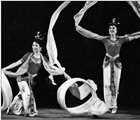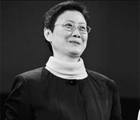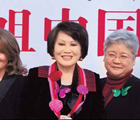-
-
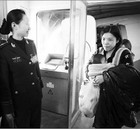
Calm&Chaos
For the past few days Li Qingda's life has felt like being in a Hollywood action flick ? surviving a 9.0-magnitude earthquake and escaping possible nuclear radiation. Li is a 21-year-old law student at Sendai's Tohoku University, located close to the epicenter of the earthquake that struck off the coast of Japan on Friday. It spawned a tsunami that swallowed up whole villages and towns, killing at least 3,600 people, with more than 7,800 still missing.
-

Childcare
Just like new moms, new fathers can be depressed, and a study found a surprising number of sad dads spanked their 1-year-olds. About 40 percent of depressed fathers in a survey said they'd spanked kids that age, versus just 13 percent of fathers who weren't depressed. Most dads also had had recent contact with their child's doctor ?a missed opportunity to get help, authors of the study said.
-

A SAD fact
Before finally accepting a position as department head, Wu Ting turned down three promotion opportunities in the past 20 years just so she could avoid giving presentations at large gatherings.
-

-
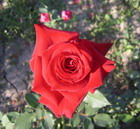
-
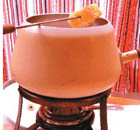
-
-
Key Words
Tea Peking Opera
Confucius
Cultural Heritage
Jade Chinese New Year
Imperial Palace
Chinese Painting
Heritage
China's water world seeks World Cultural Heritage listing
By Cheng Anqi (China Daily)
Updated: 2011-03-04 07:59
 |
Large Medium Small |
Fuling district in Southwest China's Chongqing municipality is appealing to the public to submit slogans for its application to the United Nations to get the Baiheliang Underwater Museum listed as a World Cultural Heritage site.
"The slogans should be rich in meaning yet succinct," museum curator Hu Liming says.
"It should be less than 12 characters and highlight Baiheliang's hydrographic science, and historical and artistic value in protecting the Three Gorges' cultural relics."
If its bid is successful, the museum will become Chongqing's second World Cultural Heritage site, after the Dazu Grottoes were listed in 1999.
Baiheliang, meaning "White Crane Ridge", is a 1,600-meter-long, 15-meter-wide natural ridge on the Yangtze River's northern bank.
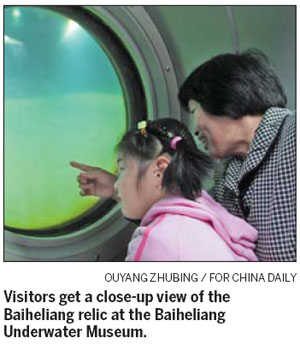
It previously protruded from the water only during the dry seasons, usually from December until March.
There are two explanations for the name. One is that white cranes would flock to the ridge in the past. The other is that a Taoist, who meditated on the ridge and finally became immortal, transformed into one of the namesake fowl and flew away.
On the huge rocks are 18 sculptures of fish that serve as water-level markers and record 1,200 years of changes to the Yangtze's water level. There are also more than 30,000 Chinese characters carved into the rock.
It is believed to be the world's most ancient hydrographic survey device and is one of four State-level national treasures in the Three Gorges area.
But the sculptures were submerged by the Three Gorges Dam project in 2001.
When the Three Gorges Reservoir's water rose above 175 meters, Baiheliang was submerged under more than 30 meters of water.
The government invested more than 200 million yuan ($30 million) to build the museum to preserve the relic.
Passing through a 90-meter-long escalator tunnel - Asia's longest - visitors can go 40 meters underwater to get close-up views of the inscriptions through 8-cm-thick glass windows.
One of the most celebrated inscriptions is of a stone fish demarcating the low-water mark. The fish's eye is equal to the zero-water level of the river's upper reaches.
There is a local saying that the stone fish hails a bumper crop year. If it can be seen in winter, the coming year will provide an abundant harvest.
The fish carving is more than 1,100 years older than the Jianghanguang gauge created in 1856 in Wuhan, capital of Hubei province.
The carvings are a collection of works by generations of exceptional calligraphers and are today the country's only underwater inscriptions.
More than 300 literati etched more than 30,000 characters in eight calligraphic forms. The most celebrated was carved by Song Dynasty (AD 960-1279) scholar Huang Tingjian.
The museum also has 28 underwater cameras, enabling visitors to zoom in and out using touch-screens.
"Visitors who are fond of diving can also explore these great works up close," Hu says.
Chongqing's government has been preparing the World Heritage Site application since 2006.
"Environmental issues usually pose the greatest challenge in the application process," Hu says.
"But Bailianghe's museum is in itself a form of protection. So this site doesn't face so many barriers."
China Daily
(China Daily 03/04/2011 page18)

